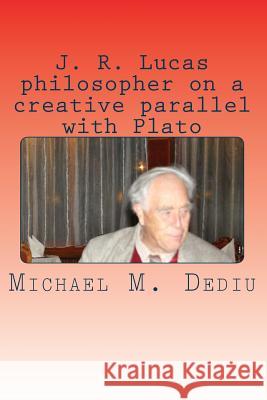J. R. Lucas philosopher on a creative parallel with Plato: An American viewpoint » książka
J. R. Lucas philosopher on a creative parallel with Plato: An American viewpoint
ISBN-13: 9781939757326 / Angielski / Miękka / 2016 / 214 str.
Philosophy (in Greek means love of wisdom), mostly considered as a noble academic discipline, means the study of the fundamental principles and ideas of knowledge, truth, real world, proper behavior, values, and existence, based on logical reasoning. Some important personalities give their own interpretations: Protagoras (490 BC - 420 BC) - "Man is the measure of all things"; Socrates (470 BC - 399 BC) - "There is only one good, knowledge, and one evil, ignorance"; Aristotle (384 BC - 322 BC) - "We are what we repeatedly do. Excellence, then, is not an act, but a habit"; Rene Descartes (1596 - 1650) - "Cogito, ergo sum" (I think therefore I am); Bishop George Berkeley (1685 - 1753) - "Esse est percipi" (To be is to be perceived); Bertrand Russell (1872 - 1970) - "Science is what you know. Philosophy is what you don't know." Plato (428 BC - 347 BC) was one of the greatest minds in human history, and he is the founder of the western philosophy: "What is at issue is the conversion of the mind from the twilight of error to the truth, which climb up into the real world which we shall call true philosophy." J. R. Lucas, FBA, University of Oxford, is a mathematician, inventor, and one of the most distinguished philosophers of our time, who is a disciple of Plato, and who brings numerous new ideas in philosophy. In this book, for the general public, we chronologically present happenings from Lucas' and Plato's lives, as well as many other interesting events and facts, and include many writings of Lucas, as well as comments about Lucas. The wealth of the ideas from Lucas' books, having as roots Plato's books, represent a valorous contribution to our philosophical and cultural heritage, and will remain as a powerful testimony for the future generations. ."











